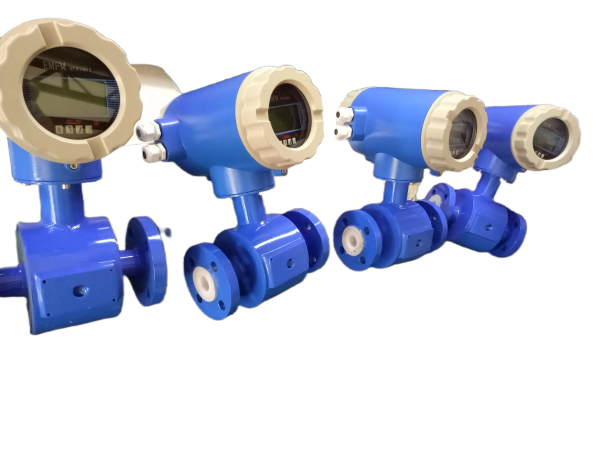
What are the advantages of using an electromagnetic flowmeter?

Electromagnetic flowmeters (EMF) are becoming increasingly popular in various industrial applications, particularly in the beverage production sector. Compared to traditional mechanical flowmeters, electromagnetic flowmeters offer several significant advantages, making them especially suitable for meeting the needs of the beverage industry. These advantages include high accuracy, durability, versatility, strong resistance to interference, and non-contact measurement, all of which help optimize production processes and improve product quality.
High Precision and Stability
One of the key advantages of electromagnetic flowmeters is their exceptional measurement accuracy. These devices provide precise flow measurements for a variety of liquids, such as water, juice, syrup, and even complex mixtures used in beverage production. Accurate flow measurement is crucial in beverage manufacturing, ensuring the correct proportions, processing, and packaging of raw materials.
Precise flow measurements help avoid wastage or shortages of raw materials and ensure consistency across batches. For example, in juice production, even a small variation in the amount of juice or water can affect the flavor and overall quality of the final product.No Moving Parts, High Durability
Unlike traditional mechanical flowmeters that rely on rotating parts or turbines, electromagnetic flowmeters have no moving components. This design makes them far more durable than conventional flowmeters, as they are less prone to wear and damage. Traditional mechanical flowmeters may experience measurement inaccuracies and higher maintenance costs due to the aging of mechanical components. Because they do not require frequent repairs or part replacements, electromagnetic flowmeters have lower maintenance costs and a longer service life. This durability ensures that beverage manufacturers can rely on electromagnetic flowmeters for stable performance over the long term.Wide Applicability
Electromagnetic flowmeters are highly versatile and can measure the flow of a wide range of liquids, including those containing impurities, solid particles, or even corrosive substances. This is particularly important in the beverage industry, where multiple types of liquids, such as juice, syrup, additives, and flavored water, are used during production.
Traditional flowmeters often fail to provide accurate measurements when dealing with viscous liquids, liquids containing solid particles, or sticky substances. However, electromagnetic flowmeters can measure the flow of these liquids accurately, regardless of their composition. Whether the beverage production process involves clean water or thick juice, electromagnetic flowmeters offer precise and reliable flow measurements.Strong Resistance to Interference
In beverage production, the flow of liquids can be affected by factors such as bubbles, solid particles, foam, temperature, and pressure changes. These factors may lead to inaccurate measurements by traditional flowmeters, particularly those that rely on mechanical parts or sensors in direct contact with the liquid. However, the design of electromagnetic flowmeters effectively resists these interferences.
Since electromagnetic flowmeters measure flow based on the electrical conductivity of the liquid, they are unaffected by bubbles, solid particles, or foam. In beverage production, liquids may contain pulp, fruit particles, or bubbles, but electromagnetic flowmeters can ensure accurate flow measurements, maintaining the stability of the production process and ensuring the final product meets the required standards.Non-contact Measurement
Another reason why electromagnetic flowmeters are popular in the beverage industry is their non-contact measurement principle. This makes them particularly suitable for applications that require the preservation of liquid purity, such as juice, soft drink, or dairy production. Additionally, non-contact measurement reduces the need for frequent cleaning and maintenance of the flowmeter itself.
Traditional mechanical flowmeters, with their moving parts, may require cleaning to prevent dirt or contaminants from accumulating, which can be time-consuming and labor-intensive. In contrast, electromagnetic flowmeters offer a more hygienic and efficient production process.
In conclusion, compared to traditional mechanical flowmeters, electromagnetic flowmeters have several key advantages, especially in the beverage production sector. By incorporating electromagnetic flowmeters into the production process, beverage manufacturers can improve efficiency, reduce downtime, and ensure the high-quality delivery of products. As the beverage industry continues to evolve, the advantages of electromagnetic flowmeters will continue to drive technological innovation and operational excellence.
